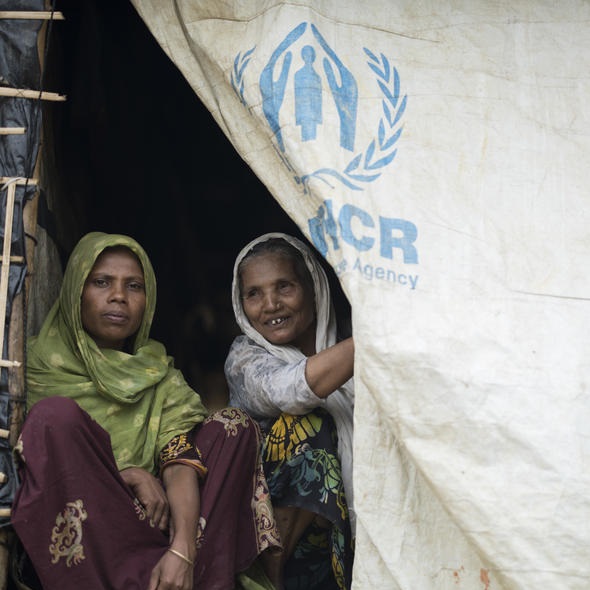Post Distribution Monitoring - Shelter and Non-Food Items, Rohingya Refugee Response - July 2020
Bangladesh, 2021
Get MicrodataIdentification
UNHCR_BGD_2020_PDM_NFI_v2.1
Post Distribution Monitoring - Shelter and Non-Food Items, Rohingya Refugee Response - July 2020
| Name | Country code |
|---|---|
| Bangladesh | BGD |
Service Provision Assessments [hh/spa]
UNHCR uses Post Distribution Monitoring (PDM) as a mechanism to collect refugees' feedback on the quality, sufficiency, utilization and effectiveness of the assistance items they receive. The underlying principle behind the process is linked to accountability, as well as a commitment to improve the quality and relevance of support provided, and related services. Usually the surveys that form the basis of the assessment are conducted soon after the distribution of relief items is completed. Four PDMs on Non-Food Items (NFI) have been conducted since 2018. One in March 2018 covering the period from the beginning of the refugee influx in August/September 2017, and the second one in August 2018 covering distributions made during the monsoon season that year. A third PDM exercise covered the period from September 2018 up to March 2019. And a fourth one in November 2019 covered the period from April to November 2019. The current PDM survey and recommendations cover the period from November 2019 up to July 2020. This PDM exercise was initially planned in April 2020, however, it was delayed due to the lockdown imposed at the beginning of COVID-19 pandemic. A total of 1,166 households that had received NFIs from UNHCR took part in this PDM exercise. The findings from this report will be used in improving further upcoming distributions in 2020 and take into consideration lessons learned from COVID-19's impact on the distribution process.
This fifth PDM survey and exercise covers the distribution of six types of NFI assistance provided through UNHCR and its partners in 2020. It includes Liquefied Petroleum Gas (LPG)5, Core Relief Item kits (CRI)6, WASH Hygiene kits7, Compressed Rice Husks (CRH)8 and shelter repair and replacement assistance9
Sample survey data [ssd]
Households
Version
v2.1: Edited, anonymous dataset for licensed distribution.
2020-09
Scope
Basic demographics, assistance distribution information, distribution methodology, use of distributed items.
| Topic |
|---|
| Emergency Shelter and NFI |
| Core Relief items (CRIs) |
| Transportation |
| Housing, Land and Property |
| Shelter/Other Infrastructure |
| Domestic Needs/Household Support |
Coverage
16 Refugee Camp Locations where UNHCR and its partners are distributing non-food items in Cox's Bazar, Bangladesh.
All refugee households which received either of six types of NFI assistance provided through UNHCR and its partners in 2020. It includes Liquefied Petroleum Gas (LPG), Core Relief Item kits (CRI), WASH Hygiene kits, Compressed Rice Husks (CRH) and shelter repair and replacement assistance9.
Producers and sponsors
| Name |
|---|
| UNHCR |
Sampling
Stratified random sampling methodology was used to create the sample of households to be interviewed using camp as a stratum. The sample was created with a 95% confidence level and 10% margin of error. Due to lack of contact numbers for refugees and due to connectivity issues also, a sample pool with three times of the size of the targeted sample was created in order to ensure that the minimum target number of respondents was included to achieve the desired level of precision. The total number of randomly selected households participating in the survey was approximately 70 respondents per camp.
Data collection
| Start | End |
|---|---|
| 2021-07-29 | 2021-08-11 |
| Name |
|---|
| UNHCR |
For this PDM exercise, due to the limitations placed on the footprint of the humanitarian response in the camps due to COVID-19, the data collection was conducted using phone-based interviews. Four teams of enumerators (each team consisting of 9 enumerators and a team leader) were trained on remote data collection techniques, interview ethics and UNHCR's code of conduct.
Data Access
| Name | Affiliation | |
|---|---|---|
| Curation Team | UNHCR | microdata@unhcr.org |
UNHCR (2020) Bangladesh: Post Distribution Monitoring - Shelter and Non-Food Items, Rohingya Refugee Response - July 2020. UNHCR Microdata Library: https://microdata.unhcr.org
Metadata production
UNHCR_BGD_2020_PDM_NFI_DDI_v1.0
| Name |
|---|
| UNHCR |
2021-02
Metadata version
1.0
